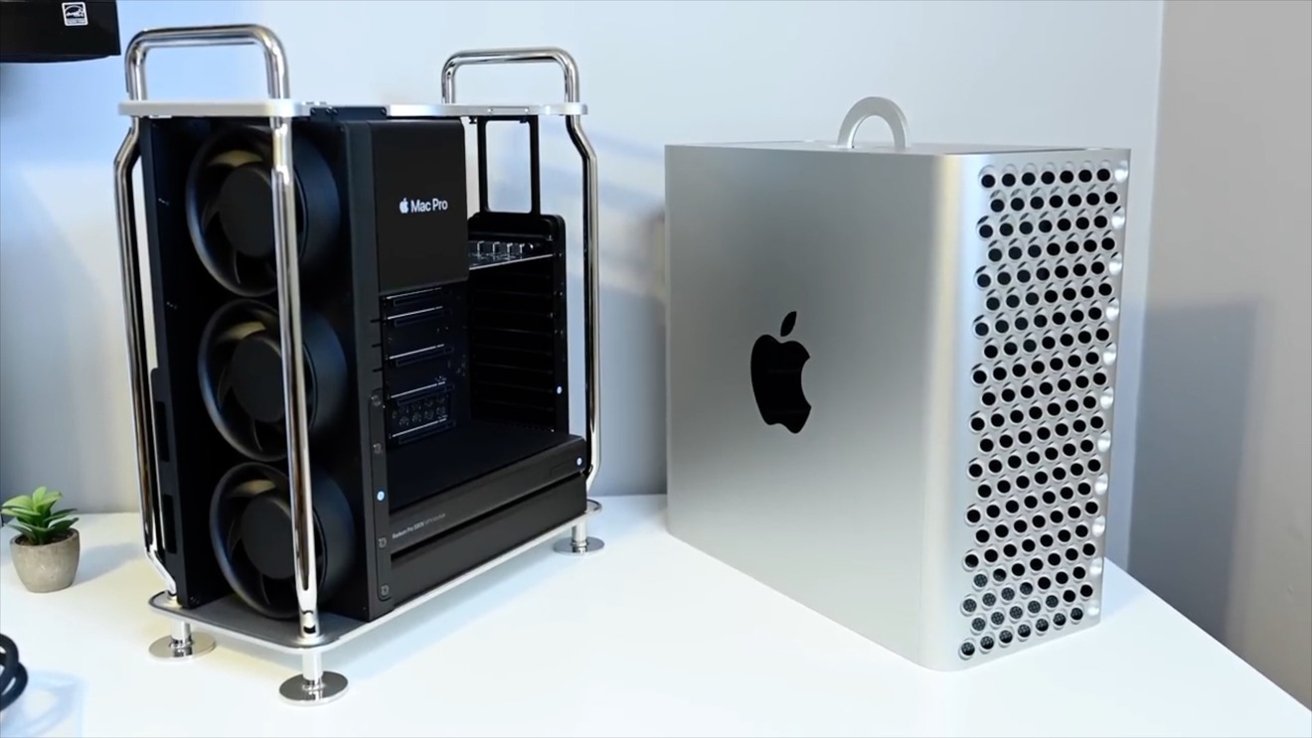VMware ditches plans to support EXSi on 2019 Mac Pro
Virtualization specialist VMware no longer has plans to support Apple's 2019 Mac Pro, the company said last week, dashing the hopes of system administrators eager to run ESXi on the high-end workstation.

Announced in a post to its official blog, VMware blamed the shift in strategy on COVID-19 and Apple's transition to Apple Silicon.
"Due to various challenges of COVID-19 and the recent announcement from Apple on their transition away from x86 to Apple Silicon, VMware will no longer pursue hardware certification for the Apple 2019 Mac Pro 7,1 for ESXi," the company said.
Customers who require access to VMware's latest macOS virtualization platform are limited to the 2018 Mac Mini and 2013 "trash can" Mac Pro.
As noted by The Register, Apple allows users to run macOS virtual machines, but only on Mac hardware.
The publication offers a bit of background on VMware's decision, saying employees note an internal process that requires them to bid on funding for projects. Resources could be scarce for an Intel Mac Pro as Apple and VMware shift focus to M-series processors.
Administrators looking for comparable solutions have few options, as the current-generation Mac Pro offers considerably more power for virtualization tasks than either Mac mini or the previous Mac Pro. While not equivalent to local VMs, Amazon's native Mac instances for AWS, a service powered by Mac minis, is a decent option.
Read on AppleInsider

Announced in a post to its official blog, VMware blamed the shift in strategy on COVID-19 and Apple's transition to Apple Silicon.
"Due to various challenges of COVID-19 and the recent announcement from Apple on their transition away from x86 to Apple Silicon, VMware will no longer pursue hardware certification for the Apple 2019 Mac Pro 7,1 for ESXi," the company said.
Customers who require access to VMware's latest macOS virtualization platform are limited to the 2018 Mac Mini and 2013 "trash can" Mac Pro.
As noted by The Register, Apple allows users to run macOS virtual machines, but only on Mac hardware.
The publication offers a bit of background on VMware's decision, saying employees note an internal process that requires them to bid on funding for projects. Resources could be scarce for an Intel Mac Pro as Apple and VMware shift focus to M-series processors.
Administrators looking for comparable solutions have few options, as the current-generation Mac Pro offers considerably more power for virtualization tasks than either Mac mini or the previous Mac Pro. While not equivalent to local VMs, Amazon's native Mac instances for AWS, a service powered by Mac minis, is a decent option.
Read on AppleInsider

Comments
Given that we know the Mac Pro will soon be upgraded to Apple Silicon, VMWare is probably just being prudent, anticipating that there will be a “super cycle” of Mx Mac Pros when they are announced. They did not rule out certifying those future MPs.
I can't keep up with who actually own VMWare at the moment. Dell was supposed to spin it off but the VMWare website timeline still says Dell owns it. If Dell still owns it I can see why they could care less about anything dealing with Macs.
And I doubt they'll announce anything with regards to M-series until things are a bit more settled, say, end of 2022 (my guess.)
I know from other software that runs just fine on a particular platform without being “certified”…
https://blogs.vmware.com/teamfusion/2021/04/fusion-on-apple-silicon-progress-update.html
There is still a market for being able to run different Mac systems in a VM for iOS developers. Being able to push code into a shared repository and have servers build the iOS app on a Mac VM and run automated tests makes production easier. They said they'd need Apple to work with them to support this for Apple Silicon.
It looks like they are quite far behind Parallels as they have no 3D support and aren't looking into Windows yet due to the licensing so it's basically Linux.
Parallels supports running macOS inside the VM on M1 already so they have Mac, Windows and Linux running and 3D support:
https://www.parallels.com/blogs/macos-monterey/
Apple must have been helping Parallels out on this because they've been very quick getting all the functionality in place. Windows licensing is still an issue but one of Microsoft's VPs is running Windows on Parallels on their M1 Mac:
There's too much work and collaboration that's gone into getting Windows running under Parallels that it seems likely they will license it at some point but it's unusual that they haven't said so officially. It would be a lot of wasted effort if they decide to never offer an official license. If a Windows ARM license becomes available, VMWare will probably look into supporting it too.
It makes sense not to support the Intel Mac Pro for this, the unit volume of these models is in the low tens of thousands per year and the fraction of those that would want to run some complex VM setup must be in the hundreds at most.